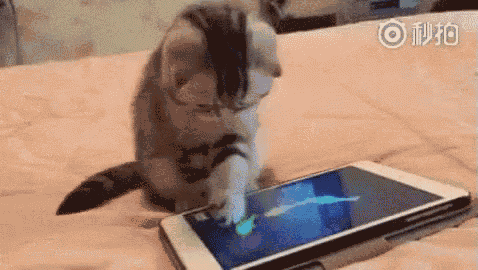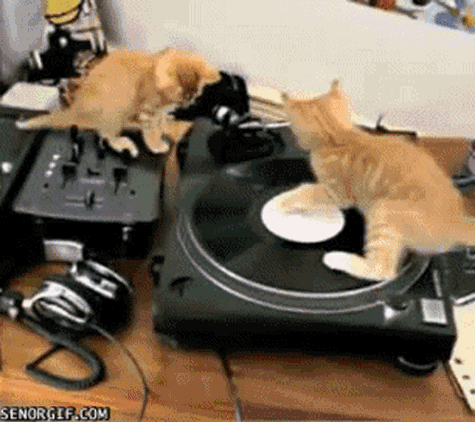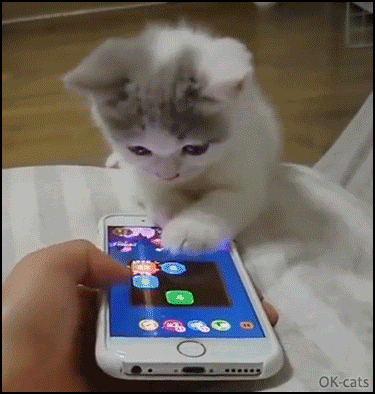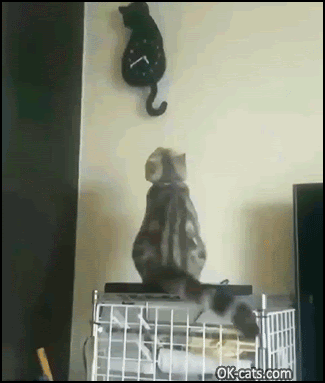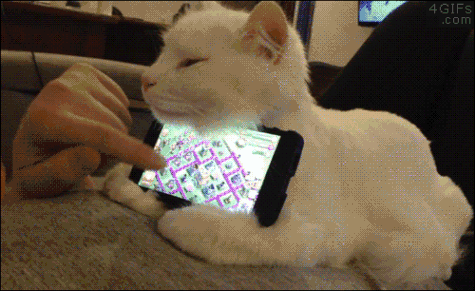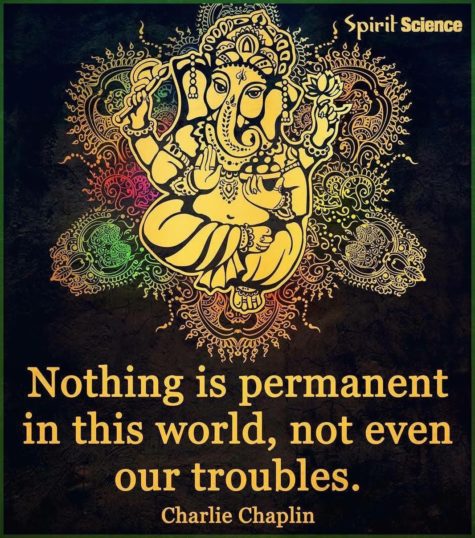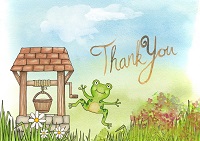Road Blocks
Slaying Your Demons

What I’m talking about here are our inner demons, soul sucking situations, and the self defeating circumstances we have boxed ourselves into. And let’s also include the people in our lives that are the enemies of our self esteem and peace of mind.
The Arabic saying is….”Should you sit in your doorway long enough… you will see the bodies of all your enemies carried past you….”
So, what do these quotes actually really mean? I don’t know. But I, for one, am tired of waiting. What about you? Are you tired of waiting? Let’s get proactive! Today let’s actually do something! Let’s do some inner and outer head hunting.

Let’s kick some ass and take some names… which means having multiple victories over a number of opponents in quick succession, with a pace showing that this feat is not over yet. “kicking ass” means completely conquering an opponent, usually to a humiliating level, basically “kicking their ass”.
On the other hand, “taking names” refers to marking a number of individuals which have not been beaten yet, to be beaten later. It derives from the mafia, as taking names of future victims helps in finding more information and keeping track of them.
With that in mind… let’s do some name taking first. Who are your inner demons? What are your soul sucking situations? And lets add in the names of the people in our lives that definitely need to back off or go away. Here are some of mine:
- Dread
- Resistance
- Procrastination
- Avoidance
- I Should (as opposed to I could)
- Anxiety
- Paralysis
- Negative Self Talk
- Self Defeating Behavior
Here’s an example…
When I have to do something that seems hard and not fun on any level, I PROCRASTINATE the doing of it, and spend a large amount of time catering to DREAD and RESISTANCE, and having ANXIETY because I am AVOIDING what I SHOULD be doing, which inevitably leads me into a state of PARALYSIS during which I sit and stare at my phone or the television and BERATE myself for doing nothing, all the while, dreading, resisting, and procrastinating whatever it is that I think I should be doing that I’m not doing.
However:

I will say that I also get a huge payoff from that behavior because after a certain amount of sitting and doing nothing, I can usually distract myself with an art project or my website. My best art usually happens when I’m busily avoiding and resisting practical life stuff.
My website, including this project, is a direct result of me resisting and procrastinating stuff that wasn’t getting done 5 years ago, and still isn’t getting done today.
I think this will clearly require some more thought. I absolutely do not want to sacrifice my creative projects on the altar of practical day to day chores and bullshit. There has to be a way to preserve my pay off while actively working towards a better quality of life. What about you? What’s your pay off?
So… Kicking Ass…
Today I’m going to tackle at least one of my demons. I’m going to hit the procrastination demon head on and stop putting off my household chores and exercise plan. Right now. I’m going to just do that stuff. All the stuff on my to do list that I’m wanting to put off till later (or never) are going to get done today. Hell or high water. I’m going to rush through it… do a blitz attack.. and then sink back into something creative and interesting.
In my mind, it looks like this:

The reality will probably be more like this:

What about you? What are your demons? Where is your pay off? Is there just one thing you can have a “come to Jesus” moment with today? What is it? And what are you waiting for?
Just Do It!
Remember, we don’t have to win the war today, but we can at least win a battle and maybe even gain a tactical advantage!
In The Swamp?
“When you’re up to your neck in alligators,
it’s hard to remember that your initial objective was to drain the swamp!”

What a great quote!
There is a point in each project where we almost always begin to feel stuck. I’m not sure why, but somewhere between 2 and 3 weeks, there’s a point where momentum seems to be lost, and discouragement sets in… or interest wanes and other more intriguing stuff pops up.
If you are doing well, and making progress that’s great! If you are feeling stuck or at a standstill, I found several posts right here on the project that might be useful. These are from the Laying the Groundwork project. Definitely worth checking out!
Sometimes we just have to grit our teeth, put our grown up pants on, and push through. Sometimes we need a change of strategy, a rethink of priorities, or just a new idea.

Exploring Altschmerz
Today I thought we could explore Altschmerz. Altschmerz is a compound noun made from the words alt (old) and Schmerz (pain). It therefore translates to ‘old pain’. What does it mean?
Weariness with the same old issues that you’ve always had—the same boring flaws and anxieties you’ve been gnawing on for years, which leaves them soggy and tasteless and inert, with nothing interesting left to think about, nothing left to do but spit them out and wander off to the backyard, ready to dig up some fresher pain you might have buried long ago.
We’ve all done this. Some of us more than others. I am an expert in Altschmerz. What about you? How familiar are you with old pain? I’m sure we all experience this differently, for me, it generally takes the form of regret and self-recrimination. What about you?
We already know that What You Focus On Grows, so this can’t be a good place to spend our precious time.
Is there a solution?
If you search Google, you’ll find a plethora of “just do this, this, and this” articles mostly rehashing the same stuff over and over. Here are some of the better ones. Some of them focus on rumination, which is obsessive worrying and overthinking, which I think it fits in fairly well with Altschmerz.
- Establish a time limit!
If you find yourself in a funk, or in an obsessive worry, regret, or negativity loop, set a timer. Give yourself a set amount of time and really go for the gold. When the timer goes off. Get up. Wash your face. Get dressed. And do something completely different, change your environment, change the channel, change something.
I love this idea. I think I’m going to schedule some worry, guilt, anxiety, regret and general angst time. Make it a part of my daily routine. It will need to be sandwiched in between activities that require me to be functional and present, and/or my favorite fun distractions so that I can easily pull myself out if I get in too deep.
- Use it to make your life better.
Let’s imagine you received a considerable electricity bill a week ago. You paid the bill, but you suddenly start thinking about it, and you feel more and more upset and stressed. The first step to turn this into something meaningful is to notice what you’re doing. This can be as simple as, “I’ve just started having anxiety about the huge electricity bill.”
Identify the reasons why you’re worrying. For example, “I’m worrying over the electricity bill because I’m on a tight budget, I’m frustrated I have to spend so much money at once, and I’m disappointed because I should have been more careful about using electricity.”
Choose some meaningful changes you could make in your life. You might decide to take shorter showers and wear extra layers of clothing, rather than always turning on the heater. You might open the blinds earlier to make the most of the natural light, rather than turning artificial lights on. All of these changes can help reduce your electricity bill next time.
Take action. Once you have some action steps, do your best to follow through. Write down helpful reminders, set timers, find an accountability buddy — anything that will help you implement the meaningful changes you chose in the previous step.
By identifying helpful changes and implementing them into your life, you’ll train yourself to learn from past mistakes, rather than just “beating yourself up” about them.
- Practice mindfulness
Mindfulness is the practice of being present in the moment with an attitude of open-mindedness and curiosity.
For example, you might take a shower, and rather than thinking about the mistakes you’ve made over the last weeks, months, and years, you could practice mindfulness. You might feel the water falling onto your skin. When you close your eyes, you listen to the different sounds you can hear. You notice areas of warmth and coolness in your body. Whenever you catch your mind wandering to the past or future, you re-focus on the moment.
A study in 2019 found that participants who practiced mindfulness were less likely to experience depression. The study author said, “Ruminators tend to latch onto a negative emotion and repeatedly mull it over in their mind, whereas mindfulness teaches us not to become entangled with our negative emotions.”
Next time you notice yourself obsessing about old pain, try a mindfulness practice like mindful breathing or mindful listening.
- Cultivate your confidence.
Low self-esteem has been linked to increased rumination. When you regularly focus on the past and negative events, you might start to feel like you’re not good enough. You might see your mistakes more than your achievements. Rather than finding ways to learn and grow, you might become caught up in thoughts about what “should” have happened differently. Feelings of shame, disappointment, frustration, and unfairness might grow stronger. So it’s not a huge surprise that your self-esteem can take a hit.
However, if you focus on cultivating your confidence, you might reduce your tendency to focus on the negatives. At the end of each day, write down a list of things you’ve done well. Know and pay attention to your best qualities. Smile at yourself often. Before you leave the house in the mornings, tell yourself how awesome you are. Because you are awesome! This is actually true.
- Talk about your thoughts.
Sometimes, an effective way to release persistent or upsetting thoughts is to talk about them. Go out for coffee with a supportive friend or family member and tell them what’s been on your mind. Invite your fears or failures into the open, where they often become less distressing.
If you don’t feel comfortable talking about persistent or upsetting thoughts with the people close to you, perhaps you’d prefer talking a licensed mental health professional. And if that’s not an option, tell your dog, your cat, or even the moon. Sometimes speaking those thoughts aloud allows them to be released.
- Use distractions.
Interrupt persistent thoughts about the past by engaging in useful distractions. Listen to a playlist of your favorite uplifting songs. Call a friend and ask them about their day. Go for a run. Declutter and tidy your home. Do something creative, like mindful coloring, gardening, or playing music.
Try to avoid mindless distractions that don’t add value to your life, and find constructive distractions that boost your emotional, physical, or social wellbeing.
Time Thieves
 In our so-called ‘Age of Distraction’, it feels almost impossible to stop getting distracted. The world around us – and the usual suspects of our phones, emails, and other technologies – seem to be vying for our attention. And doing all in their power to stop us focusing.
In our so-called ‘Age of Distraction’, it feels almost impossible to stop getting distracted. The world around us – and the usual suspects of our phones, emails, and other technologies – seem to be vying for our attention. And doing all in their power to stop us focusing.
Just like a thief, time thieves are sneaky, secretive and take what is valuable to us without us knowing.
If we want to get our time, attention and energy back for the things we find important, we need to start by looking at our relationship with our phones. These are the biggest ‘Time Thieves’ around. Other Time Thieves might include one or more of the following:
- YouTube
- Social Media
- Television
- Video Games
For me, my phone with it’s various games, apps, and the ever present Facebook is the worst offender. This is closely followed by YouTube, google, and mindless television. What do your personal Time Thieves look like?
Making Time Thieves Work For Me
There are lots of articles all over the internet on how to deal with distractions, some are more useful than others. I’m not going to bore you with them here. Instead I’m going to talk about what has actually been working for me:
- Games On My Phone
There’s this silly little game on my phone called Township. I somehow got totally entangled in it to the point of ridiculousness. Then I had this brilliant idea that I couldn’t play it unless I was on my treadmill. Perfect! I haven’t missed a single day of exercise for 2 months.
- Mindless Television
At some point during the lockdown, I got hooked on Court TV… Really? Yes! I have no clue why I find it so interesting, but I really do enjoy watching the trials live. It has an added bonus of keeping me grounded in the here and now because it’s actual people, live in the moment. And what I’ve discovered is that it’s way easier for me to wash dishes, get the laundry put away, and do little household chores if I am also watching a trial unfold.
If Court TV doesn’t have anything going on that interests me, sometimes I can find other fun stuff like Storm Chasers, The Great British Baking Show, or documentary shows about natural disasters, plane crashes, ships that sank in a spectacular way. It takes the boredom out of the more tedious activities that nag at me to get done.
More recently, I’ve been using Facebook to help me get the Prosperity Project posts wrangled and uploaded. I made a deal with myself that I could stay off of Facebook all the way up to and until I get something finished and scheduled on the website.
When I had to go out to my car and scrape all the ice off the windshield and warm it up, I told myself that this would be a perfect time to scroll through Facebook. The whole ordeal of sitting in a cold car while it warmed up was made more palatable with the addition of checking out all the “new” stuff my “friends” were talking about.
- Arts and Crafts
It occurs to me that it’s possible that art is one of my favorite distractors. I don’t think it’s a Time Thief, but I do think that I use it to totally disappear from the here and now and slide into a whole other world. What’s great about it is that I can make a bunch of cool stuff to give away as gifts, or put online for sale as a way to make a little bit of extra cash. Plus it’s fun and rewarding, much better than scrolling through my news apps or sitting and staring at a stupid television show.
Knitting gives my hands something to do when I find myself snacking all night long. Munching on junk food isn’t necessarily a time thief, but it isn’t good for me either, and I find that knitting effectively interrupts my need to keep putting stuff in my mouth.
Now It’s Your Turn
What are your most familiar Time Thieves? When and where are you most bored and uncomfortable? How do you cope with it? What if you just sat with it and faced it? How can you use your personal Time Thieves to your advantage? What are your triggers? When are you most likely to let those Time Thieves in?
Getting Distracted
This is an edited extract from Four Thousand Weeks by Oliver Burkeman. It’s kind of long, and I did try to break it up into shorter, easier to read pieces. As you can see, I did not succeed. It’s a great article though, and well worth the time spent reading it. I’ve decorated it with some cute cat gifs because.. well… they’re distracting and fun which might help with the long read.
It hardly matters how committed you are to making the best use of your limited time if, day after day, your attention gets wrenched away by things you never intended to focus on.
Distraction truly matters – because your experience of being alive consists of nothing other than the sum of everything to which you pay attention. At the end of your life, looking back, whatever compelled your attention from moment to moment is simply what your life will have been. When you pay attention to something you don’t especially value, it’s not an exaggeration to say that you’re paying with your life.
This was why Seneca, in On The Shortness Of Life, came down so hard on his fellow Romans for pursuing political careers they didn’t really care about, holding elaborate banquets they didn’t especially enjoy, or just “baking their bodies in the sun”: they didn’t seem to realize that, in succumbing to such diversions, they were squandering the very stuff of existence.
Seneca risks sounding like an uptight pleasure-hater – what’s so bad about a bit of sunbathing? – and, to be honest, I suspect he probably was. But the crucial point isn’t that it’s wrong to choose to spend your time relaxing, whether at the beach or on BuzzFeed. It’s that the distracted person isn’t really choosing at all. Their attention has been commandeered by forces that don’t have their highest interests at heart.
All of which helps clarify what’s so alarming about the contemporary online “attention economy”, of which we’ve heard so much in recent years: it’s essentially a giant machine getting you to care about things you didn’t want to care about. And you have far too little control over your attention simply to decide, as if by fiat, that you’re not going to succumb to its temptations.
Social Media
Social media is engineered to constantly adapt to our interests. No wonder the rest of reality seems unable to compete.
Many of us are familiar with the basic contours of this situation. We know that the “free” social media platforms we use aren’t really free, because, as the saying goes, you’re not the customer but the product being sold. In other words, the technology companies’ profits come from seizing our attention, then selling it to advertisers.
You might also be aware that this is delivered by means of “persuasive design” – an umbrella term for an armory of psychological techniques borrowed directly from the designers of casino slot machines, for the express purpose of encouraging compulsive behavior.
One example among hundreds is the ubiquitous drag-down-to-refresh gesture, which keeps people scrolling by exploiting a phenomenon known as “variable rewards”: when you can’t predict whether or not refreshing the screen will bring new posts to read, the uncertainty makes you more likely to keep trying, again and again and again, just as you would on a slot machine.
What’s far less widely appreciated, though, is how deep the distraction goes, and how radically it undermines our efforts to spend our finite time as we’d like. As you surface from an hour inadvertently frittered away on Facebook, you’d be forgiven for assuming that the damage, in terms of wasted time, was limited to that single misspent hour.
But you’d be wrong. Because the attention economy is designed to prioritize whatever’s most compelling – instead of whatever’s most true, or most useful – it systematically distorts the picture of the world we carry in our heads at all times. It influences our sense of what matters, what kinds of threats we face, how venal our political opponents are – and all these distorted judgments then influence how we allocate our offline time as well.
If social media convinces you, for example, that violent crime is a far bigger problem in your city than it really is, you might find yourself walking the streets with unwarranted fear. If all you ever see of your ideological opponents online is their very worst behavior, you’re liable to assume that even family members who differ from you politically must be similarly, irredeemably bad, making relationships with them hard to maintain.
So it’s not simply that our devices distract us from more important matters. It’s that they change how we’re defining “important matters” in the first place. In the words of the philosopher Harry Frankfurt, they sabotage our capacity to “want what we want to want”.
I vividly recall walking alone along a windswept Scottish beach as dusk began to fall, when I experienced one particularly disturbing side-effect of persuasive design, which is the twitchiness you start to feel when the activity in which you’re engaged hasn’t been crafted by a team of professional psychologists hellbent on ensuring that your attention never wavers.
I love windswept Scottish beaches at dusk more passionately than anything I can ever remember encountering on social media. But only the latter is engineered to constantly adapt to my interests and push my psychological buttons, so as to keep my attention captive. No wonder the rest of reality sometimes seems unable to compete.
To make things more troublesome still, it can be difficult even to notice when your outlook on life is being changed in this depressing fashion, thanks to a special problem with attention, which is that it’s extremely difficult for it to monitor itself.
The only faculty you can use to see what’s happening to your attention is your attention, the very thing that’s already been commandeered. This means that once the attention economy has rendered you sufficiently distracted, or annoyed, or on edge, it becomes easy to assume that this is just what life these days feels like. In TS Eliot’s words, we are “distracted from distraction by distraction”.
The unsettling possibility is that if you’re convinced that none of this is a problem for you – that social media hasn’t turned you into an angrier, less empathic, more anxious or more numbed-out version of yourself – that might be because it has. Your finite time has been appropriated, without you realizing anything’s amiss.
As the technology critic Tristan Harris likes to say, each time you open a social media app, there are “a thousand people on the other side of the screen” paid to keep you there – and so it’s unrealistic to expect users to resist the assault on their time and attention by means of willpower alone.
Yet if we’re to understand distraction at the deepest level, we’ll also have to acknowledge an awkward truth at the bottom of all this, which is that “assault” – with its implications of an uninvited attack – isn’t quite the right word.
We mustn’t let Silicon Valley off the hook, but we should be honest: much of the time, we give in to distraction willingly. Something in us wants to be distracted, whether by our digital devices or anything else – to not spend our lives on what we thought we cared about the most. The calls are coming from inside the house.
Why Do We Want To Be Distracted?
Consider the archetypal case of being lured from your work by social media: it’s not usually that you’re sitting there, concentrating rapturously, when your attention is dragged away against your will. In truth, you’re eager for the slightest excuse to turn away from what you’re doing, in order to escape how disagreeable it feels to be doing it; you slide away to the Twitter pile-on or the celebrity gossip site with a feeling not of reluctance but of relief.
“One of the puzzling lessons I have learned,” observes the American author Gregg Krech, describing his own experience of that urge, “is that, more often than not, I do not feel like doing most of the things that need doing. I’m not just speaking about cleaning the toilet bowl or doing my tax returns. I’m referring to those things I genuinely desire to accomplish.”
It’s worth pausing to notice how exceptionally strange this is. Why, exactly, are we rendered so uncomfortable by concentrating on things that matter – the things we thought we wanted to do with our lives – that we’d rather flee into distractions, which, by definition, are what we don’t want to be doing with our lives? So that suddenly, the thing you’d resolved to do feels so staggeringly tedious that you can’t bear to focus on it for one moment more.
The solution to this mystery, dramatic though it might sound, is that whenever we succumb to distraction, we’re attempting to flee a painful encounter with our finitude – with the human predicament of having limited time and, more especially in the case of distraction, limited control over that time. When you try to focus on something you deem important, you’re forced to face your limits, an experience that feels especially uncomfortable precisely because the task at hand is one you value so much.
This is also why boredom can feel so surprisingly, aggressively unpleasant: we tend to think of it as not being interested in whatever it is we’re doing, but, in fact, it’s an intense reaction to the deeply uncomfortable experience of confronting your limited control.
Boredom can strike in widely differing contexts: when you’re working on a major project; when you can’t think of anything to do on a Sunday afternoon; when it’s your job to care for a two-year-old for five hours straight. But they all have one characteristic in common: they demand that you face your finitude. You’re obliged to deal with how your experience is unfolding in this moment, to resign yourself to the reality that this is it.
No wonder we seek out distractions online, where it feels as though no limits apply – where you can update yourself instantaneously on events taking place a continent away, present yourself however you like, and keep scrolling forever through infinite news feeds, drifting through “a realm in which space doesn’t matter and time spreads out into an endless present”, to quote the critic James Duesterberg.
This also makes it easier to see why the strategies generally recommended for defeating distraction – digital detoxes, personal rules about when you’ll allow yourself to check your inbox, and so forth – rarely work, or at least not for long. They limit your access to the things you use to assuage your urge towards distraction, but they don’t address the urge itself.
Even if you quit Facebook, or ban yourself from social media during the workday, or exile yourself to a cabin in the mountains, you’ll probably still find it unpleasantly constraining to focus on what matters, so you’ll find some way to relieve the pain by distracting yourself: by daydreaming, taking an unnecessary nap, or – the preferred option of the productivity geek – redesigning your to-do list and reorganizing your desk.
What we think of as distractions aren’t the cause of our being distracted. They’re just the places we go to seek relief.
The overarching point is that what we think of as distractions aren’t the ultimate cause of our being distracted. They’re just the places we go to seek relief from the discomfort of confronting limitation. The reason it’s hard to focus on a conversation with your spouse isn’t that you’re surreptitiously checking your phone beneath the dinner table.
On the contrary, “surreptitiously checking your phone beneath the dinner table” is what you do because it’s hard to focus on the conversation – because listening takes effort and patience and a spirit of surrender, and because what you hear might upset you.
Even if you place your phone out of reach, therefore, you shouldn’t be surprised to find yourself seeking some other way to avoid paying attention. In the case of conversation, this generally takes the form of mentally rehearsing what you’re going to say next, as soon as the other person has finished making sounds with their mouth.
So What Can We Do About It?
I wish I could reveal, at this point, the secret for uprooting the urge towards distraction – the way to have it not feel unpleasant to decide to hold your attention, for a sustained time, on something you value, or a task you can’t easily choose not to do. But the truth is that I don’t think there is one.
The most effective way to sap distraction of its power is to stop expecting things to be otherwise – to accept that this unpleasantness is simply what it feels like to commit ourselves to the kinds of demanding and valuable tasks that force us to confront our limited control over how our lives unfold.
And yet there’s a sense in which accepting this lack of any solution is the solution. The way to find peaceful absorption in a difficult project, or a boring Sunday afternoon, isn’t to chase feelings of peace or absorption, but to acknowledge the inevitability of discomfort, and to turn more of your attention to the reality of your situation than to railing against it.
Some Zen Buddhists hold that the entirety of human suffering can be boiled down to this effort to resist paying full attention to the way things are going, because we wish they were going differently (“This shouldn’t be happening!”), or because we wish we felt more in control of the process.
There is a very down-to-earth kind of liberation in grasping that there are certain truths about being a limited human from which you’ll never be liberated. You don’t get to dictate the course of events. And the paradoxical reward for accepting reality’s constraints is that they no longer feel so constraining.
Confusingly Convoluted Simplicity
Continuing with my rephrasing of our Five Simple Things, today we have #4, which was really hard to totally and completely change. In the process of rewriting it, I came up with a wonderfully, confusing and convoluted, long and involved rendering of : “Every time you use keys, visualize they are unlocking opportunities to get you closer to your dreams.”
Here’s what I came up with:
From this moment on,
When making use of a tool for easy access,
Picture in your mind’s eye
That you have just released and expanded
Favorable chances
To draw ever nearer to infinite possibilities
For health, happiness, prosperity,
Or what ever it is you wish to achieve.
Sometimes simple is just better… well, actually, simple usually is better, and the simplest way to say this is:
“When unlocking something, imagine you are unlocking your dreams.”
So, that was somewhat enlightening. I like the long, convoluted, complicated phrasing that really gets my mind running all over the place. But I think that’s because having my mind running all over the place is familiar and comfortable. It’s my preferred mode of avoiding difficult feelings and situations.
However, making it simple might be really useful as well.
Which makes me wonder, what if I kept it simple inside my brain, for at least a small part of the day… what would that look like? What if it looked like me actually being in the actual moment in my actual body… Wow! Imagine that! And what if everything I said, or did, was just simple. Maybe it would be easy and simple. Maybe it would be fun to be simple… I don’t know. Might be worth a try!
Changing Things Around
Yesterday I felt like I had hit a wall, but then late last night a thought bounced into my head. “The definition of insanity is doing the same thing over and over again and expecting a different result.” So, I said to myself… OK then. Tomorrow I am going to do things differently. Tomorrow I am going to do everything I do normally, and at the same time, I’m going to change it up, so that it’s different.
So, today I have been doing just that. Every time I think of it, I try to change my normal habits just a little bit. Instead of turning on the TV and trolling the news on my phone, I put in a CD. And instead of picking a CD to fit my mood, I closed my eyes and picked a random CD.
Instead of putting on the same pair of socks that I’ve been wearing for a week???!!! Seriously? Yes! I put on a clean new pair of socks, a pair that I haven’t worn in a really long time… Instead of getting on my computer right away, I did a load of laundry and cleaned off the counters.
And so it goes… It feels good. I’ve even actually been remembering our Five Simple Things! Every single one of them so far! Wow!
Unlocking Opportunities
Number four of our five simple things is as follows:
Every time you use keys, visualize they are unlocking opportunities to get you closer to your dreams.
This is an awesome idea. I really like it. Why can’t I remember to do it? I have not remembered it even one time. And the last time I unlocked something, I knew that keys and unlocking were part of this project, but for the life of me I couldn’t remember what the heck I was supposed to do.
I even thought of a couple of different ways to approach the concept, like for example:
- When opening a jar think about opening up to new ideas, experiences, and knowledge.
- When opening a door, think about moving forward with my goals, ideas, and/or life.
I haven’t been successful at remembering those either. I guess I am feeling blocked on the idea of moving forward, unlocking, opening up, unblocking… any kind of movement forward. Or maybe I just need to put a note to myself on my key ring… LOL.
So what about you guys? Thoughts? Ideas? Experiences? Inspirations? Comments? Complaints? Observations? Opinions?
Nothing Is Permanent
A Ganesh Road Opener Ritual
If you are seeking new opportunities and wish to break down any obstacles that stand in your way, a Ganesh Road Opener Ritual just may be your answer!
To perform a Ganesh Road Opener Ritual, print out a picture of Ganesh and place it on an altar. You will also need a yellow candle, candy, a simple plate, a bowl of fresh water and some fresh flowers. Begin by cutting the flowers and placing them in the bowl of fresh water. I prefer to cut the flowers down to simply the flower tops and allow them to float in the water.
You will also want to add a couple drops of Ganesh Oil into the water as you do this. On your plate, place any items that reflect what you wish to accomplish. For example, you can place your business cards, some new silver coins, a job application, a prayer, petition, photos or even an important business contract. Get your yellow candle and anoint it with Ganesh oil, drawing the oil up the candle towards the wick.
- Here’s a recipe if you want to make it for yourself: Ganesh Road Opener Oil Blend
- Calamint or Hibiscus essential oils, hydrosols, or fragrances can be substituted for an oil blend.
- Sesame oil can also be used as a substitute.
Place the candle in an appropriate candle holder and then put it on the plate with your items. When you are ready, light the candle and say a prayer. When the candle has completely burned down, take all the remains and bury it in a flower pot.
Here is the easiest and most effective way to ask Ganesh for help:
- First study a picture of Ganesh, so that you may have a firm understanding of what he looks like and can recreate that image in your mind.
- Take a few deep breaths, close your eyes and bring that image of Ganesh to your mind. Try and see him in as much detail as possible. See his beautiful elephant-head, with welcoming eyes, large ears, long trunk and big, pot-belly. See him as clearly as you can.
- Now, simply speak to him, speak all of your concerns, worries, needs, etc. Know that as you speak he is hearing you and that you are making a connection with him.
That’s it! It’s that easy. When you have done this once, it is said that you will then have a permanent and ongoing relationship and connection with Ganesh. Speak to Him anytime you wish, as many times as you wish. It does not have to be a formal meditation. Take a moment in your day, if you feel the need, close your eyes and speak to him using the above method.
Invoking Ganesh With A Mantra
Another way that you can invoke the power of Ganesh is by repeating one of his mantras. In the simplest sense, mantras are ancient Sanskrit words of power. Each syllable of a mantra resonates a certain vibration. Mantras are used in meditation, to focus the mind, but they are also used to invoke the blessing of a Deity.
- A variety of Ganesh Mantras can be found here.
What is happening when you repeat a mantra over and over, is that you are matching your own vibrational frequency to that of the mantra and its purpose (wealth, health, success, knowledge, etc.). Each of the Hindu Deities has their own mantra or mantras, which invoke the type of energy that the Deity represents.
Collected from various sources
- Radical Self Care Project Overview by shirleytwofeathers - No Comment
- Radical Self Care Image Gallery by shirleytwofeathers - No Comment
- It’s A Wrap by shirleytwofeathers - 3 Comments
- Something To Consider by shirleytwofeathers - 1 Comment
- Nurturing Your Precious Self by shirleytwofeathers - 3 Comments
me: Make Your Own Violet Fire
Abdulrahman: Money Chant – Very Fast
Shirley Twofeathers: It’s A Wrap
Daniel Knirs: It’s A Wrap
Shirley Twofeathers: It’s A Wrap

